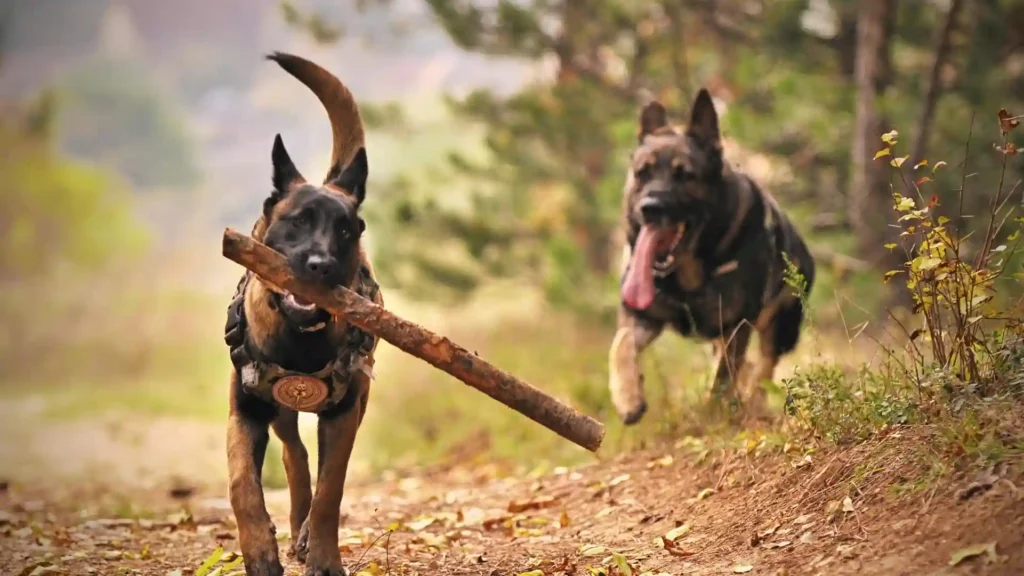Your dog’s stomach tells you more than you think. Loose stool, loud gurgling, or too much gas means something isn’t working right. You may think it’s just a food issue, but there’s something deeper going on. That “something” is your dog’s gut health—and it plays a bigger role than most people know.
Many dog owners see stomach issues as normal. They ignore signs until things get worse. But what if helping your dog feel better didn’t mean new food or medicine? What if there was a better way to support your dog from the inside?
Your dog’s gut isn’t just where food gets digested. It’s where the immune system gets stronger. It’s where energy levels get balanced. It’s also where mood is affected.
When your dog’s gut is healthy, everything else starts working better too. Skin clears up. Stool becomes firm. Itches slow down. Your dog starts playing more and resting better.
But when the gut is off? Problems spread. Scratching, scooting, bad breath, constant licking, or low energy can all be signs. Gut problems show up in places you don’t expect.
This is why probiotics matter. Probiotics are live, friendly bacteria that help balance the gut. And that balance is what helps everything else run right.
What Probiotics Really Do Inside Your Dog
This part might surprise you. Probiotics do much more than just “fix” your dog’s gut. They are active helpers working on many levels. First, they compete with bad bacteria.
When your dog’s gut has harmful bacteria, those can cause gas, diarrhea, or infections. Probiotics crowd those bad bacteria out. They take up space and resources, leaving less room for the harmful germs to grow.
Next, probiotics help clean up waste in the digestive system. They break down leftover food particles and other material your dog’s body can’t use. This cleaning helps keep the gut environment healthy and balanced. A cleaner gut means less chance for illness.
Probiotics also improve how your dog absorbs nutrients. When your dog eats, the food breaks down in the stomach and intestines. Probiotics help the gut lining work better.
They make sure vitamins, minerals, and other nutrients pass through properly into the bloodstream. That means your dog gets more value from every meal without needing extra food.
Here’s something many dog owners don’t realize: probiotics help create vitamins right inside the gut. Certain strains produce important B vitamins and vitamin K. These vitamins support energy, blood health, and healing.
Without enough good bacteria, your dog may miss out on these crucial vitamins, even if the food has them.
Some probiotics do more—they calm inflammation in the gut. This is big news for dogs with itchy skin, allergies, or sensitive stomachs. When the gut is inflamed, the immune system can overreact. That overreaction causes itching, redness, and discomfort.
Probiotics help lower that inflammation. With a calmer gut, the whole immune system stays balanced, reducing allergy flare-ups and skin problems.
And here’s a fact many owners don’t know: most of your dog’s immune system is in the gut. The gut contains special immune cells that fight germs and keep your dog healthy. Probiotics help train these immune cells.
They teach the immune system to respond properly—not too little, not too much. This means your dog can fight off infections without causing damage to itself. It’s like coaching the immune system to be smart and measured.
What You Might Notice After Starting Probiotics
This is where things get exciting for you and your dog. Many owners see changes quickly, sometimes within just a few days. One of the first signs is better poop. Instead of loose or runny stool, you may notice firmer, more regular bowel movements. This is a clear sign the gut is starting to balance out.
Another common change is reduced itchiness. Dogs who used to scratch or chew at their skin may begin to calm down. The constant licking or biting at paws or other spots can slow or stop. This means the gut inflammation is easing, and the immune system is responding better.
A big surprise for many owners is the improvement in their dog’s mood. Dogs that seemed tired, sluggish, or uninterested in play may become lively and happy. This change isn’t just luck. The gut and brain communicate closely.
Good bacteria in the gut help produce serotonin, a chemical that affects mood and behavior. When the gut is healthy, serotonin levels improve, making your dog feel calmer, happier, and more balanced.
You may also notice fresher breath. Probiotics reduce bad bacteria that cause stinky breath. Less gas is another sign your dog’s digestion is improving. If your dog used to scoot—dragging their rear on the floor—this may stop as well, since probiotics help reduce irritation in that area.
Some dogs experience fewer random vomiting episodes and have a more steady appetite. They may eat better and digest food more easily, leading to steady energy levels throughout the day.
Dogs that have been treated with antibiotics in the past often show the biggest improvement. Antibiotics kill both bad and good bacteria. This leaves the gut out of balance. Probiotics help rebuild the population of good bacteria, restoring a healthy gut environment. That means fewer digestive upsets and stronger overall health.
Choosing the Right Probiotic for Your Dog
Not all probiotics are the same. Some have too few live strains. Some don’t survive stomach acid. Others are packed in food that doesn’t support gut repair.
You want one that’s made for dogs. Human probiotics aren’t the same. Look for one with multiple strains. The more variety, the better support for your dog’s gut.
Also check the number of live cultures. Look for CFUs (colony forming units). A good product has billions—not millions—of CFUs.
Watch the ingredient list. Avoid sugar, flavorings, or fillers. Stick with pure, clean sources. Some come in powder, others in chews. Pick the one your dog enjoys and takes easily.
And always introduce it slowly. Start with a half dose for a few days. Let your dog adjust. Then move to the full dose and watch for changes.
If your dog is on antibiotics, give the probiotic a few hours apart from the medication. That keeps the bacteria from being killed off.
The real magic happens over time. Gut balance isn’t built in one day. It builds in layers. As good bacteria grow, they push out the bad ones.
Your dog’s stool may shift for a few days at the start. That’s normal. It’s part of the adjustment. Then you may see steady improvements—less itching, better coat, more energy.
If your dog has allergies, probiotics won’t erase them overnight. But they can lower how strong the body reacts to triggers. That means less scratching, chewing, or licking.
Probiotics also help long-term when your dog is under stress. Travel, vet visits, grooming, or boarding can shake up the gut. Keeping probiotics steady helps prevent upset stomach or behavior issues during stress.
Older dogs may benefit most. Their immune systems weaken with age. Probiotics support gut health, which keeps the immune system working better and longer.
For puppies, it’s a good start. Early gut support helps build a strong system from the start.
Here’s what it all leads to: fewer vet visits, fewer surprises, and a dog that feels better every day.
Many owners spend so much time treating the outside. Shampoos, sprays, special diets. But the gut controls more than you think. Once you help it heal and stay balanced, the outside starts to improve too.
You may start with probiotics to help one problem. But the effects may reach way further.
More tail wags. Longer playtime. Fewer sick days. That’s the real reward.
Before You Start: A Few Things to Keep in Mind
- Talk to Your Vet if Your Dog Has Major Health Issues
Probiotics are generally safe for most dogs. But if your dog has serious health problems or is on medication, it’s important to check with your vet first. Some medical conditions require special care.
Your vet can help you choose the right probiotic and make sure it won’t interfere with other treatments. This step protects your dog and gives you peace of mind.
- Track Changes
Keep a simple notebook or use a phone app to write down your dog’s symptoms before and after starting probiotics. Note things like poop consistency, scratching, energy levels, and appetite. Tracking helps you see patterns and improvements. It also makes it easier to share information with your vet. Clear records can show what works and what needs adjusting. - Stay Consistent
Building good gut health takes time. Skipping doses or stopping probiotics early can slow progress. Make giving probiotics part of your dog’s daily routine. Whether it’s in food or as a chew, consistency is key. When you stay steady, you give probiotics the best chance to balance your dog’s gut over weeks or months. - Pair With Good Food
Probiotics work best when your dog’s diet supports gut health too. Choose real, whole foods with fiber, such as vegetables or specially made dog food that includes natural fibers.
Avoid high-carb, low-quality kibble that can feed harmful bacteria. Feeding your dog quality food helps probiotics thrive and helps the gut repair itself faster. The better the food, the stronger the results.
- Don’t Expect Magic on Day One
Probiotics are not a quick fix. The gut needs time to heal and balance. Usually, you should give probiotics 2 to 4 weeks before expecting noticeable changes. Some dogs may take longer depending on their health history. Patience pays off. After a few weeks, watch carefully for improvements. This steady progress means your dog’s gut is getting healthier and stronger.
Probiotics won’t solve every issue. But they help your dog from the inside—where it really starts. You’re not just treating symptoms. You’re building real health.
Dogs don’t tell us when something’s wrong. But they show it. In their coat, mood, poop, or playfulness. You can wait until something goes wrong—or you can build better health now.
Start with a clean probiotic. Make it a habit. Track the changes. Your dog may surprise you.
When you focus on the gut, everything else starts to fall into place.
And that’s a win worth giving your dog every single day.




